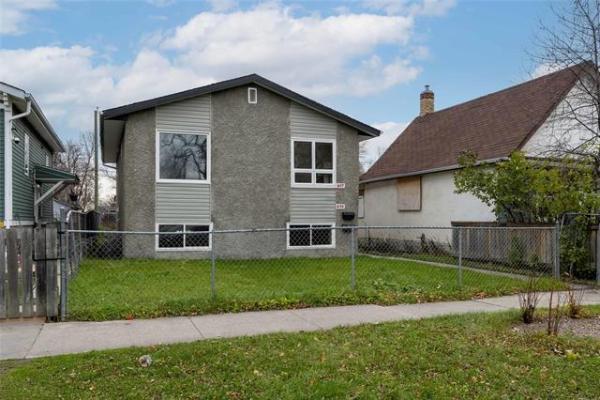
Todd Lewys / Winnipeg Free Press files
The market cooldown has allowed more buyers to have prepurchase inspections done than in the recent past.
Question: In the current real estate market conditions are pre-purchase home inspections being included in most offers to purchase, or are they still being left out to make offers more attractive to sellers?
John Q. Public
Answer: Home inspections are more prevalent now than at height of the hot real estate market of the past few years, but are still being omitted in many situations. There may be several reasons for this trend, but often it comes down to the choices available to purchasers and confidence in the value of the inspection process
I posed this hypothetical question partly because it is one of the most common ones I receive verbally from potential clients, friends, neighbours, and others interested in the state of my business and the general real estate market. My answer varies due to several conditions like availability of homes for sale, interest rate increases, Realtor recommendations, new home construction rates, and buyer frustration. These factors may all have a varying affect on the prevalence of home inspections, but the overall trend still seems to be negative. Even compared to pre-pandemic conditions the number of offers that include conditions like successful home inspections, financing, time limitations, or other stipulations, seem to be way down from one or two decades ago.
Anyone who follows news coverage, whether on television, newspapers, or various online forms, knows that the real estate market in Canada had been overheated for most of the last decade, until recently. During the COVID pandemic many experts thought that the market would cool off, but in many areas the reverse happened. So many people were working from home, rather that in a crowded office, that the demand for larger homes increased. Many families with more than one member trying to find quiet workspaces found it difficult to coexist in their current living spaces. Consequently, many homeowners sought out larger homes and also put their own on the market when they were successful. This created even more demand, especially since mortgage rates were at all time lows. Rather than creating a balanced real estate market, where home inspections were more commonplace, the rising demand led to further reductions.
Along with the lessening demand for pre-purchase inspections, seemingly deleted from the home buying process, more inspection companies appeared every year. Where the demand for these new businesses was coming from is a mystery. Long-established practitioners were struggling with declining inspections and revenue, so how were these newbies supposed to get a foothold? To make matters worse, inflation was steadily on the rise for the first time in a decade, and costs like gasoline and insurance were skyrocketing. The result of all this was that many older colleagues of mine, across the country, were choosing to retire early rather than fight an uphill battle. Unfortunately, that is leaving behind a workforce of inexperienced inspectors, often poorly trained because of the missing mentors. Buyers with the advantage of having home inspections prior to purchase are often forced to hire inspectors they can not rely on, due to the lack of experience and regulation. Realtors, bankers, lawyers, and other professionals used to referring inspectors they knew well for many years don’t know who they can count on. The end result is a loss of confidence in the entire inspection industry, which will lead to even less inspections.
The recent market cooldown has allowed more buyers to opt in for a pre-purchase inspection than in the recent past. This should have created a more balanced approach, and increased business for home inspectors, but less homes are being sold. Due partly to the higher interest rates, and more government mandated mortgage safeguards, there are less qualified buyers. Locally, there seems to be many fewer homes for sale than an average spring, which sways a potential buyer’s market toward the seller’s end of the scale. When there is less inventory of homes available, and steady numbers of buyers looking for new houses, offers to purchase may forgo conditions that make them less attractive to the seller.
In a nutshell, there is no crystal ball that can predict the future of the real estate market or its effects on more prevalent pre-purchase home inspections. Unfortunately, the trends I have witnessed in the last two and a half decades of involvement in this relatively new industry are not promising. The lack of government regulations and oversight of both the inspection industry and the real estate market has made only incremental advances in consumer protection. The unsuccessful and near-sighted attempts at self-regulation and certification of home inspectors has been a major failure on the part of my industry, which seemed full of promise 20 years ago. While we have succeeded in dramatically increase the public’s awareness of the value of our services, we have failed to ensure inclusion in the overall homebuying process. The end result is less inspections being performed by less experienced inspectors and eroding confidence by more poorly protected homebuyers.
There are still many offers to purchase for home sales that include home inspection conditions, but the numbers appear to be well below those of the past. While that may improve somewhat in the next few years, due to favourable market conditions and purchaser desires, it may never again be as commonplace as a decade ago, when consumer protection was at its high point from a home inspection perspective.
Ari Marantz is the owner of Trained Eye Home Inspection Ltd. and a Registered Home Inspector (RHI)(cahpi.ca). Questions can be emailed to the address below. Ari can be reached at 204-291-5358 or check out his website at trainedeye.ca.
trainedeye@iname.com



